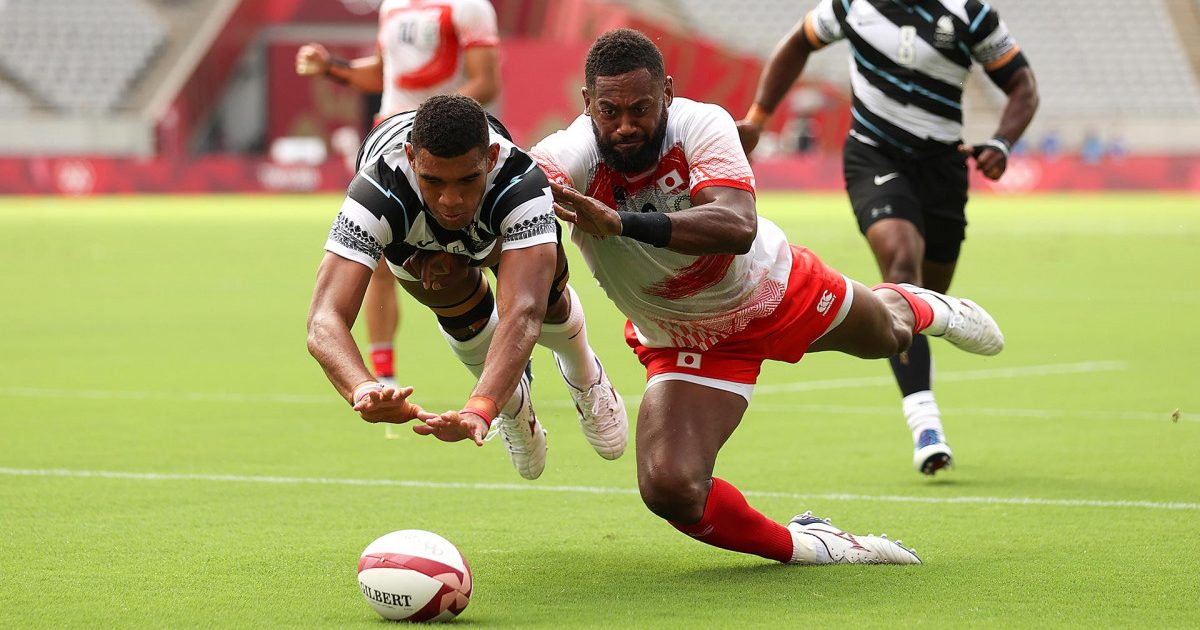Fijian Drua name five more players in maiden Super Rugby Pacific squad

The Fijian Drua have announced the signings of five more players for their inaugural Super Rugby Pacific squad.
A week after the expansion franchise announced its first five players and former All Blacks and Wallabies skills coach Mick Byrne as its head coach for the next two seasons, the Drua have confirmed its second batch of players for next year.
Those players are Tokyo Olympics gold medallist Meli Derenalagi, 12-test utility back Serupepeli Vularika, former Fiji U20 loosehead prop Meli Tuni, uncapped utility back Vinaya Habosi and Tasman Mako lock Te Ahiwaru Cirikidaveta.
A veteran sevens star with leadership experience on the global stage, Derenalagi helped guide Fiji to its second successive Olympic gold medal in the men’s sevens event two months ago and will act as a loose forward option for the Drua.
Part of the Drua side that won the Australian NRC title in 2018 and the LA Giltinis team that won this year’s Major League Rugby championship, Vularika stands as one of the more experienced players that have been signed by the franchise.
After making his test debut for Fiji in 2016, the 29-year-old has gone on to play 12 tests for the Pacific Island nation and will be called upon to utilise that experience in the backline, where he can play halfback, second-five, wing and fullback.
Both Tuni and Habosi have starred for Suva and Namosi in the Skipper Cup, Fiji’s premier domestic competition, and have been part of Fijian representative teams at various levels.
A member of last year’s Fiji Warriors side, Tuni played three times for Fiji’s U20 side in 2019 and, at the age of just 21, looks to be a long-term prospect for the Drua.
Habosi, meanwhile, is capable of playing in the midfield, on the wing and at fullback and has been involved with both the Fijian sevens and Flying Fijians squads, although he is yet to be capped by either team.
Capable of playing in the loose forwards as well as in the second row, Cirikidaveta is set to add some steel to the Drua pack after having been part of the Tasman Mako set-up since 2017.
The New Zealand-born 23-year-old, who is also of Maori heritage and trained with the Crusaders during this year’s Super Rugby pre-season, won back-to-back NPC titles with the province over the past two seasons.
The added bonus of Cirikidaveta’s signing for Fiji is that he has declared his international allegiance for the nation upon the announcement of his deal with the Drua.
Moana Pasifika won’t be based in Samoa or Tonga for at least another seven years after it was announced that the Super Rugby Pacific expansion franchise will play out of Mt Smart Stadium until 2028. #MoanaPasifika #SuperRugbyPacific https://t.co/E4FDO2ekYN
— RugbyPass (@RugbyPass) September 28, 2021
“It is an honour and a remarkable accomplishment for us to have Te Ahiwaru declare his eligibility for the Flying Fijians and join the Fijian Drua for Super Rugby,” Fiji Rugby Union high performance general manager Simon Raiwalui said via a statement.
“He is a powerhouse forward, aggressive in both attack and defence, and is just as effective at lock as he is in the back row.
“We will benefit from his experience over a number of seasons with Tasman Mako, which includes back-to-back NPC Premiership wins.
“As a professional coming through an elite New Zealand pathway right from high school, Te Ahiwaru has a lot of offer especially to the younger members in our squad.”
Raiwalui also paid tribute to the other four players who have signed on with the Drua.
“At just 23, Ratu Meli’s contribution to Fijian rugby has already been immense. With his speed and ball handling skills, he adds dynamism to the squad as a back row forward or as a scrum anchor. His aerial skills make him a decent line-out option as well.
“We are very pleased to have our international utility Seru Vularika back. He has the ability to play halfback, inside centre, wing or fullback.
“Seru is creative, has a good kicking game, defends aggressively and makes the gain line in any position he plays, offering excellent options to the coaching staff.
“Young Meli Tuni is 21 years of age but has already been around the blocks – with Suva in the domestic competition, Fiji U20s and the Fijian Warriors.
“Likewise, Vinaya Habosi, also just 21, has already been a part of the wider Fijian sevens and Flying Fijians squads. He follows in the fine tradition of talented Fijian wingers who know their way to the tryline.
After the #AllBlacks snatched a late victory over the #Springboks in their 100th Test on Saturday, we look ahead to their rematch.#NZLvRSA https://t.co/C5BVZJ9XbC
— RugbyPass (@RugbyPass) September 27, 2021
“Both Meli and Vinaya have earned their place in the Fijian Drua squad.”
Last week, the Drua announced Tokyo Olympics gold medallist Napolioni Bolaca, one-test hooker Tevita Ikanivere, Bay of Plenty speedster Onisi Ratave, experienced loose forward Nemani Nagusa and young halfback Simione Kuruvoli as their first wave of players confirmed to play for the franchise next year.
The Drua are expected to announce the rest of its playing squad over the coming weeks, with pre-season scheduled to take place in Australia from mid-October.





































































